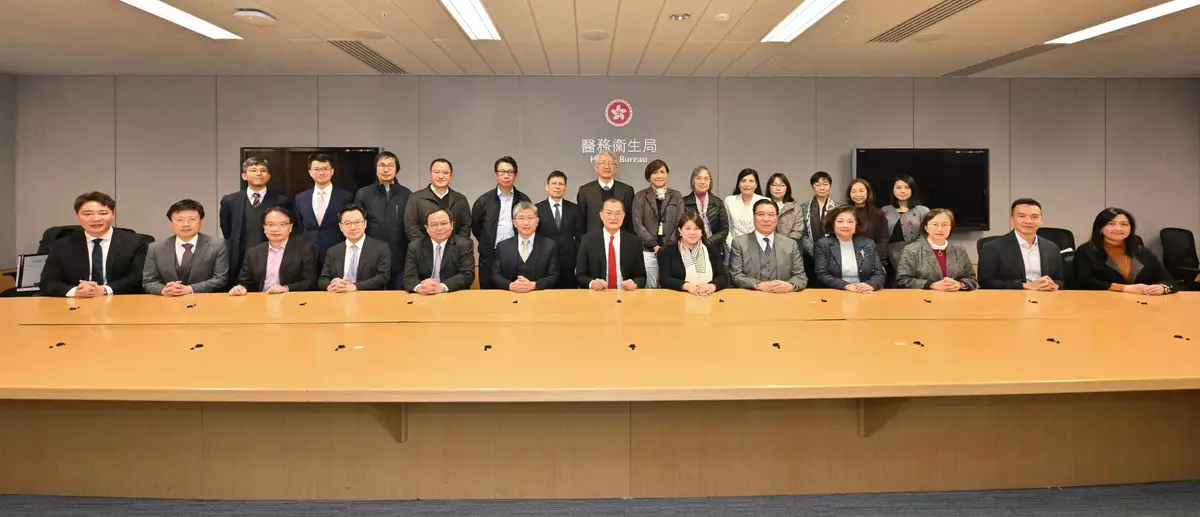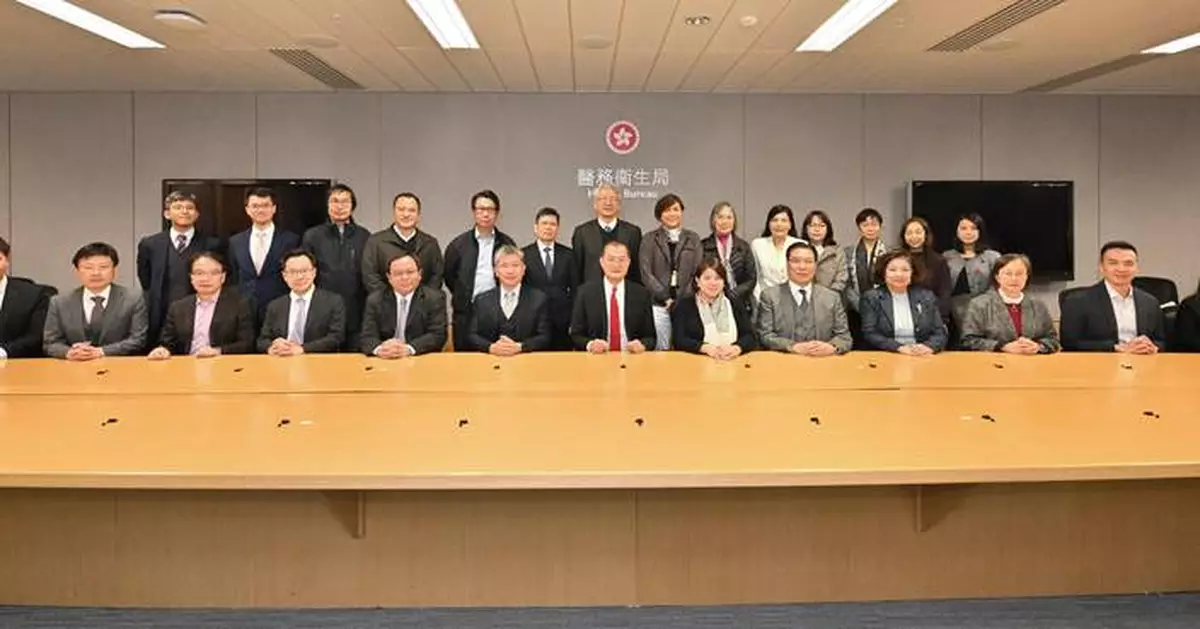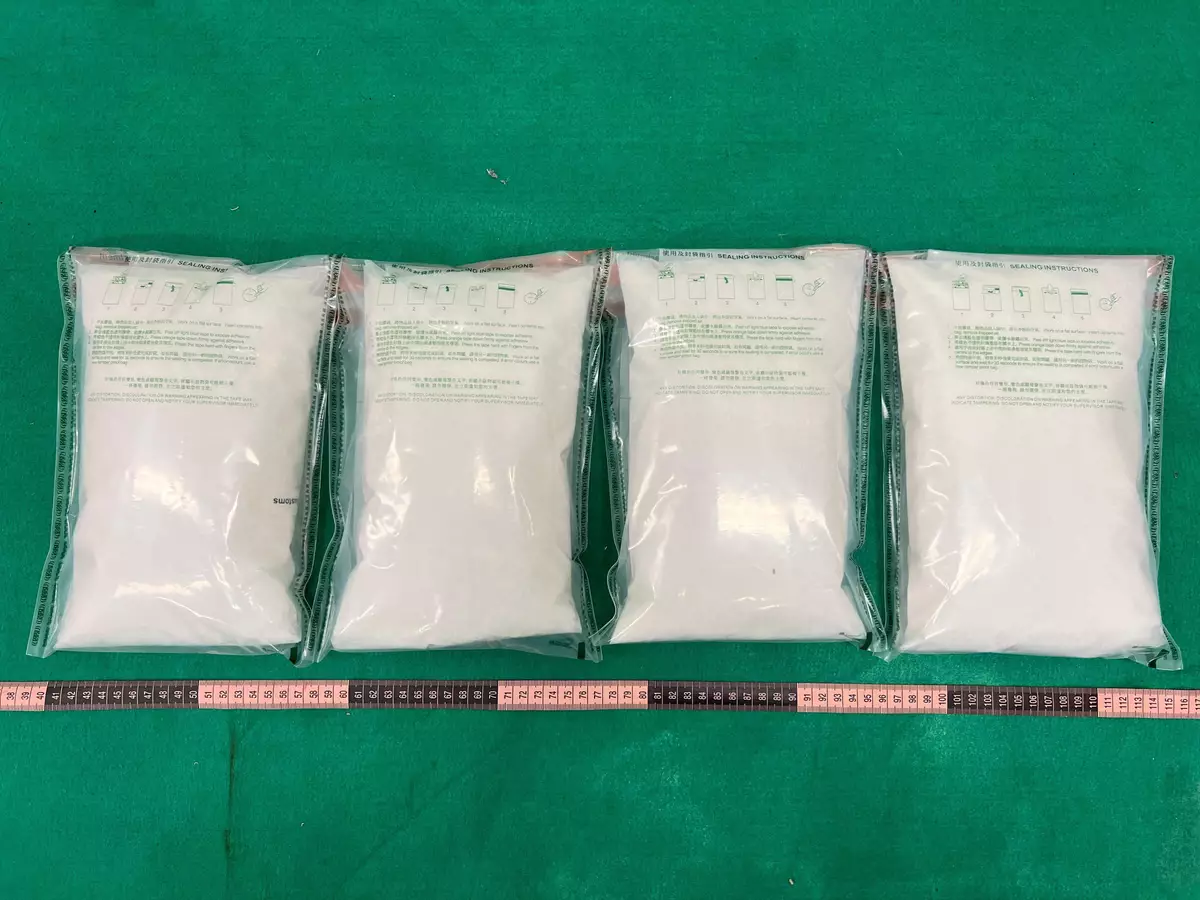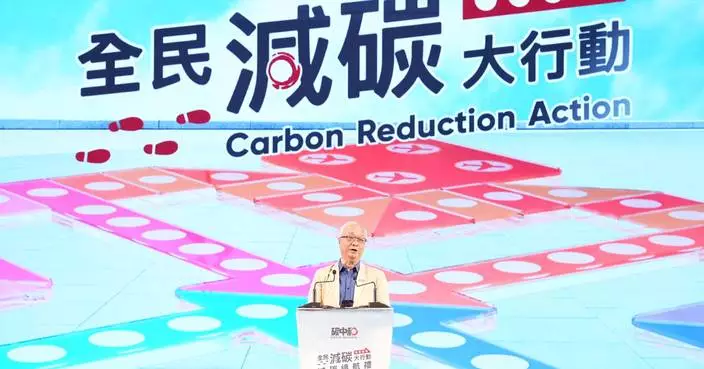Secretary for Health chairs joint meeting of Chinese Medicine Development Committee and its three Subcommittees
The Secretary for Health, Professor Lo Chung-mau, chaired the joint meeting of the Chinese Medicine Development Committee (CMDC) as well as its Chinese Medicine Practice Subcommittee, Chinese Medicines Industry Subcommittee and Chinese Medicine Development Blueprint Subcommittee today (December 17) to take forward various policy initiatives relating to Chinese medicine (CM) under "The Chief Executive's 2024 Policy Address". He also had in-depth discussions with members on the progress of formulating the Chinese Medicine Development Blueprint and the latest progress of the preparation for the commissioning of the Chinese Medicine Hospital of Hong Kong (CMHHK).
Professor Lo said, "CM not only constitutes an integral part of the healthcare system of Hong Kong but also serves as a traditional strength of the city. The Chief Executive put forward a number of policy initiatives on CM development in his 2024 Policy Address. The Government will continue to capitalise on the characteristics and strengths of CM in Hong Kong and promote the high-quality and high-standard development of CM in Hong Kong on all fronts, with a view to contributing to the overall national CM development."
During the meeting, representatives of relevant government departments and organisations briefed members on the latest progress and major achievements of the following CM policy initiatives:
• The Government continues to press ahead with the stakeholder engagement and consultation work for formulating the Blueprint;
• Leveraging the strength of Hong Kong's dual-track healthcare system that incorporates both Chinese and Western medicine to contribute to the country's promotion of the internationalisation of CM and discover more evidence of clinical significance on herb-drug interaction;
• The Hospital Authority (HA) will further expand integrated Chinese-Western medicine (ICWM) services, including launching pilot programmes for the treatment of respiratory diseases and knee osteoarthritis, to help tackle common elderly degenerative diseases in an ageing population;
• Launching preparation work with relevant organisations for commissioning the CMHHK, which is expected to commence services in phases starting from the end of next year. The CMHHK will promote CM development in terms of medical services, education and training, research, multilateral collaboration and creating health values. It will provide outpatient and inpatient services in pure CM, CM-predominant and ICWM. It will also provide six specialised CM services, namely Internal Medicine in CM, External Medicine in CM, Gynaecology in CM, Paediatrics in CM, Orthopaedics and Traumatology in CM, and Acupuncture and Moxibustion in CM, as well as services for 23 special disease programmes;
• The Government Chinese Medicines Testing Institute established the world-class Digital Herbarium for Chinese Medicines in March this year;
• The Department of Health is committed to promoting CM international co-operation and supported the World Health Organization in holding a meeting in Hong Kong in November this year to discuss the roadmap for developing the International Herbal Pharmacopoeia (IHP), the draft outline, the framework and more of the IHP in order to provide a globally recognised reference to ensure the quality and safety of herbal medicines;
• Continuing to take forward a number of new and enhancement measures for the Chinese Medicine Development Fund, including inviting organisations to submit applications for Strategic Theme Commissioned Project Funding Programme and broadening its funding scopes;
• Promoting various types of high-quality CM talent nurturing projects, including co-organising the Hong Kong Chinese Medicine Talent Training Programme with the National Administration of Traditional Chinese Medicine;
• Organising the first Hong Kong Chinese Medicine Culture Festival from this December to February next year to enhance citizens' interest in and understanding of the traditional wisdom and concepts of CM; and
• Leverage the strengths of CM in disease prevention and treatment as well as the resources in the private market by calling on the CM sector to extend the consultation hours and the CM traders to ensure stable and sufficient CM drug supply during the demand surge in seasonal influenza seasons.
Professor Lo said, "I led delegations to attend the 6th Guangdong-Hong Kong-Macao Greater Bay Area Conference on Inheritance, Innovation and Development of Traditional Chinese Medicine in Dongguan and the 2024 World Conference on Traditional Medicine in Beijing in November and December this year respectively. At these two conferences, we conducted in-depth exchanges with national, provincial and municipal officials on CM services, education and industry development, with a view to fostering multilateral collaboration. We also introduced Hong Kong's achievements in promoting CM development and the strategic direction of promoting the internationalisation of CM to attendees from all over the world. I would like to express my gratitude to members for their invaluable advice on policy initiatives relating to CM development. I look forward to working with members and stakeholders of the CM sector to jointly formulate the Blueprint, setting out concrete strategies for the overall development of CM in Hong Kong, as well as the short, medium and long-term objectives and action plans, to develop Hong Kong into a bridgehead for the internationalisation of CM."
The Permanent Secretary for Health, Mr Thomas Chan; the Under Secretary for Health, Dr Libby Lee; Deputy Secretary for Health Mr Eddie Lee; the Project Director of the Chinese Medicine Hospital Project Office of the Health Bureau, Dr Cheung Wai-lun; the Controller of Regulatory Affairs of the DH, Dr Amy Chiu; the Director (Strategy and Planning) of the HA, Dr Ching Wai-kuen; the Hospital Chief Executive of the CMHHK, Professor Bian Zhaoxiang, and representatives of the relevant government departments and organisations also attended the meeting today.
Established in 2013 and chaired by the Secretary for Health, the CMDC drives the direction and long-term strategies of the future development of CM in Hong Kong by providing recommendations to the Government on four key areas, namely the development of CM services, personnel training and professional development, scientific research and development, and development of the CM drug industry (including CM drug testing).

Secretary for Health chairs joint meeting of Chinese Medicine Development Committee and its three Subcommittees Source: HKSAR Government Press Releases






